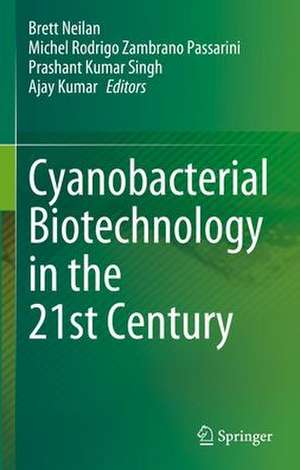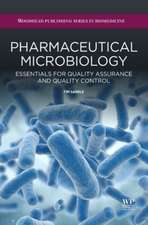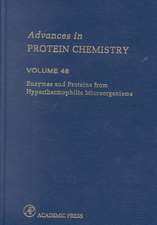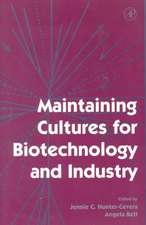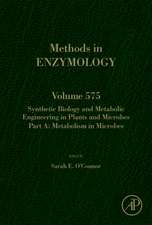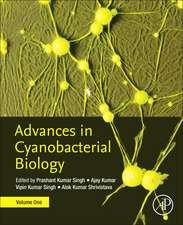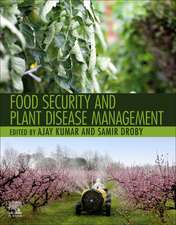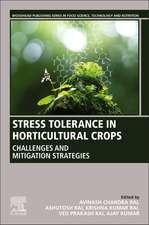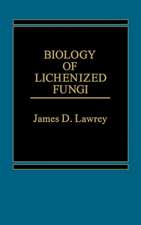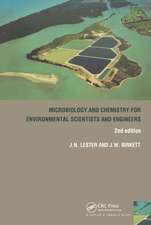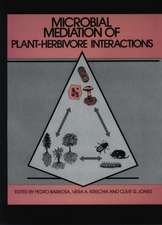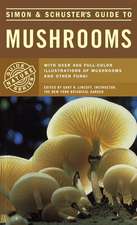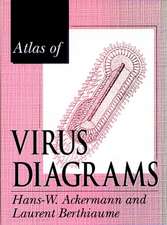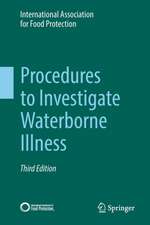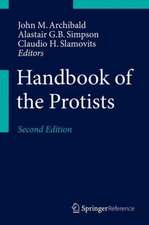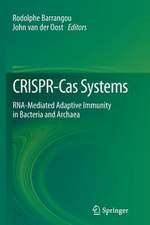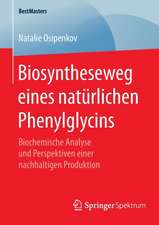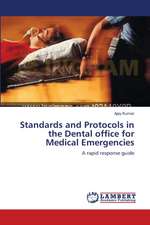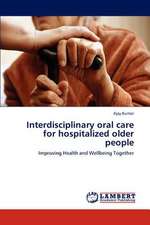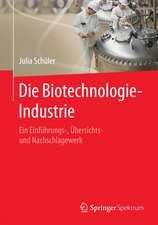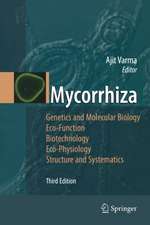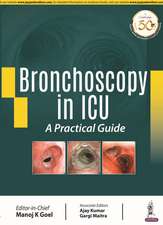Cyanobacterial Biotechnology in the 21st Century
Editat de Brett Neilan, Michel Rodrigo Zambrano Passarini, Prashant Kumar Singh, Ajay Kumaren Limba Engleză Hardback – 24 iun 2023
Preț: 1114.02 lei
Preț vechi: 1358.56 lei
-18% Nou
Puncte Express: 1671
Preț estimativ în valută:
213.16€ • 222.56$ • 176.42£
213.16€ • 222.56$ • 176.42£
Carte tipărită la comandă
Livrare economică 04-18 aprilie
Preluare comenzi: 021 569.72.76
Specificații
ISBN-13: 9789819901807
ISBN-10: 9819901804
Pagini: 283
Ilustrații: XIII, 283 p. 1 illus.
Dimensiuni: 155 x 235 mm
Greutate: 0.59 kg
Ediția:2023
Editura: Springer Nature Singapore
Colecția Springer
Locul publicării:Singapore, Singapore
ISBN-10: 9819901804
Pagini: 283
Ilustrații: XIII, 283 p. 1 illus.
Dimensiuni: 155 x 235 mm
Greutate: 0.59 kg
Ediția:2023
Editura: Springer Nature Singapore
Colecția Springer
Locul publicării:Singapore, Singapore
Cuprins
1 Cyanobacteria and Cyanotoxins in Underground Water and the New Perspectives in a Climate Breakdown Scenario.- 2 On the pigment profile of 12 cyanobacteria isolated from unpolluted and polluted habitats of Southwest India.- 3 Cyanobacterial Stress and its OMICS Perspective.- 4 Spirulina: From ancient food to innovative super nutrition of the future and its market scenario as a source of neutraceutical.- 5 Response of cyanobacteria during abiotic stress with special reference to membrane biology: an overview.- 6 Microalgal Biopigments: Production and enhancement strategies to enrich microalgae-derived pigments.- 7 Bioprospecting and mechanisms of cyanobacterial hydrogen production and recent development for its enhancement as a clean energy.- 8 Molecular Biology of non-ribosomal peptides (NRPS) and Polyketide (PKs) biosynthesis in Cyanobacteria.- 9 Cyanobacteria as bioindicator of water pollution.- 10 Degradation of xenobiotics by cyanobacteria.- 11 Impact of pesticides on cyanobacteria in aquatic ecosystems.- 12 International environmental standards for the regulation of freshwater cyanobacterial blooms and their biotoxins.- 13 Therapeutic potential of cyanobacteria as a producer of novel bioactive compounds.- 14 Bioactivity potential of cyanobacterial species inhabitant of southwestern India.- 15 Cyanobacteria Mediated Heavy Metal and Xenobiotics Bioremediation.
Notă biografică
Prof. Neilan is a molecular biologist who studies microbes and their chemistries, including the genetics of toxic cyanobacteria. The research has led to an understanding of the biochemical pathways responsible for producing their toxins. He also studies natural microbial products from novel environments, including symbioses, and the mechanisms of complex biosynthesis of these bioactive compounds.
Prof. Passarini's research areas are microbial ecology and microbial bioprospecting of extreme environments in the search for enzymes and metabolites of industrial interest applicable to the production of biofuel and degradation processes of environmental pollutants, as well as Metagenomic and metabarcoding.
Dr Singh is currently working at the Department of Biotechnology, Mizoram University, PUC campus, India. His research focuses on plant and cyanobacterial stress biology around the omics approaches.
Dr Kumar is a microbiologist, and his research area includes microbiome, postharvest management, microbial biocontrol, plant-microbe Interactions, Cyanobacteria research and endophytes.
Prof. Passarini's research areas are microbial ecology and microbial bioprospecting of extreme environments in the search for enzymes and metabolites of industrial interest applicable to the production of biofuel and degradation processes of environmental pollutants, as well as Metagenomic and metabarcoding.
Dr Singh is currently working at the Department of Biotechnology, Mizoram University, PUC campus, India. His research focuses on plant and cyanobacterial stress biology around the omics approaches.
Dr Kumar is a microbiologist, and his research area includes microbiome, postharvest management, microbial biocontrol, plant-microbe Interactions, Cyanobacteria research and endophytes.
Textul de pe ultima copertă
This book covers recent advances in cyanobacterial research. It deals with diversity, evolutionary biology, stress physiology, molecular biology of stress responses, and biotechnology of this group of prokaryotes. Cyanobacteria are ubiquitous and, undoubtedly, agriculturally microorganisms in terms of carbon and nitrogen fixation. In addition, cyanobacteria have long been used to fertilize crops and are a source of protein for humans. In parallel with the advances in cyanobacterial research in the 21st century, the development and application of innovative techniques in molecular biotechnology has widened the spectrum of commercial applications and potential exploitation of cyanobacteria. This book will be of interest to both new and experienced researchers involved in cyanobacterial molecular biology, ecology, and industrial biotechnology. This collection of chapters from experts also serves as essential reading for undergraduate and graduate students of to understand the importance of cyanobacteria in agriculture, ecology, microbial physiology, and environmental sciences.
Caracteristici
Covers themes in cyanobacterial researches such as phylogeny, molecular biology, stress biology and biotechnology Explains the application of cyanobacteria for bioremediation, biofuel generation, industries A special section on cyanobacterial polyploidy, functional genomics and genetic engineering
